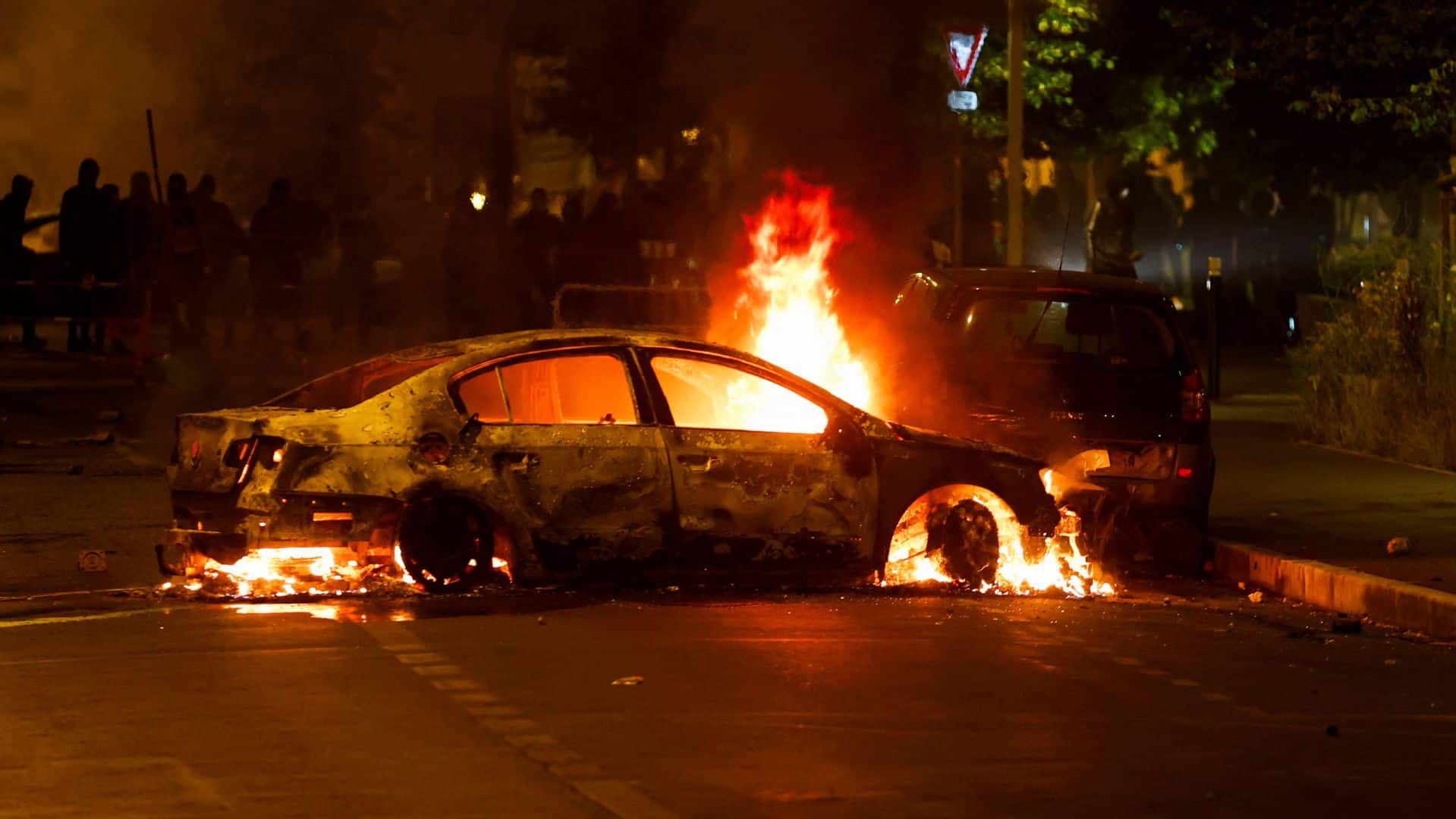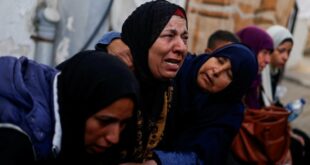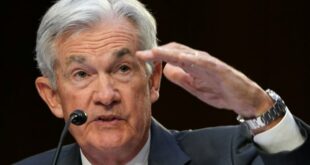French police got new rules for firing their weapons but not new training, say critics
French cities are again combustible with widespread destruction of property and mass looting over the last three nights, and this time around the outrage may be much harder for President Emmanuel Macron to contain.
Whereas a succession of unpopular austerity measures, particularly raising the pension age, sent French union members — along with some troublemakers — into the streets for several months this past winter and spring, the extreme violence of the past 72 hours is on a more worrying scale.
It was triggered by the police shooting of a 17-year-old teen, known as Nahel, who was pulled over at a traffic stop Tuesday in the Paris suburb of Nanterre.
He was shot dead as he drove off, against police orders.
Overnight, the officer now charged with voluntary homicide in the shooting apologized through his lawyer and there have been continuing pleas from Macron's government for calm.
Neither action appears to have lowered the temperature.
Scenes captured overnight on social media videos suggest the violence has reached a scale unseen in more than three decades.
In Montreuil, rampaging crowds destroyed shops and McDonald's restaurant. In Nantes, a car crashed through the glass window of a major supermarket. In Aubervilliers, near Paris, a bus depot was burned to the ground along with 12 buses, and the facade to the Paris Aquatic Centre, a major Olympic venue for the 2024 games, was damaged by rioters. Municipal buildings in Marseille and several other cities were also torched.
"Every young man from the 'banlieues' [suburbs] can recognize themselves in the case of Nahel who was killed," said prominent French sociologist Christian Mouhanna, who has studied French policing extensively. He serves as director of the department of research and development at the National Institute for Advanced Security and Justice Studies in Paris.
Nahel, whose last name has not been released, had an Algerian mother and a Moroccan father.
Mouhanna said the "banlieues," or suburbs of Paris, have become synonymous with troubled, high-crime rate communities, typically home to many immigrants and refugees from Africa.
For many, the shooting of the teen at a traffic stop, the third such fatal police shooting in 2023, confirms what they already knew — that they are victims of institutional racism and systemic discrimination, especially by police.
"The problem is that we have 20 years of mistakes in these policies to change and they can't be changed in two days or two weeks," Mouhanna told CBC News in an interview.

More clashes in France after deadly police shooting
Violent protests and mass arrests continue across France following the police shooting of a teenager during a traffic stop on the outskirts of Paris. One officer has been detained on homicide charges.
Specifically, local activists blame a 2017 change to French law that they claim lowered the threshold for police to fire their weapons at people they believe might be about to commit a serious crime.
"The French police [are] the deadliest in continental Europe," said Yasser Louati, head of the Committee for Justice and Liberties, a national French organization that advocates for human rights and civil liberties. "This is because the role of the police is not to protect and serve, but to instil fear."
The 2017 amendment came about after the violence of the attack and mass shootings at the office of the magazine Charlie Hebdo that left 17 people dead, including two police officers.
"Police felt insecure and they were demanding more ways to answer [such] problems," said Mouamma, the policing expert.
The result he says was a law adjustment that gave police more leeway in deciding when to fire their weapons, especially if they feel a potential suspect is "likely" to put someone else in danger.
"It was like a signal, 'Yes, you are more free, you can use your [guns] more.' And what we have seen is an increase in shootings," Mouamma said.
In France in 2022, 13 men — most of them Black or of Arab origin — were killed by police at traffic stops.
Louati, the neighbourhood activist, said the street violence is fuelled by the sense that Macron's government intends to keep using French police as a method of controlling troublesome communities, rather than holding meaningful engagement with them.
"These killings are not a series of accidents," Louati told CBC News.
"They are prone to happen because there is no political will to change the dogma of the police. And there is even less political will to clamp down on the use of deadly force by the police."
Additionally, Louati said police are not sufficiently trained in de-escalation or on procedures for when they should draw their weapons, adding to the uncertainty over how the new law should be applied.
In this most recent case, video shot by bystanders shows Nahil's yellow Mercedes being stopped by two police officers who pointed guns at the occupants inside.
When the car drove away, one officer shot the driver in the chest. The car crashed a short time later and the 17-year-old was pronounced dead.
France's powerful police unions, including the Alliance de Police Nationale, released a statement in the aftermath of the shooting condemning Macron and other French authorities for rushing to judgment on the officer's guilt.
The role of the president, it said, "is to call for calm, to firmly condemn urban violence and above all not to legislate under emotion."
France's police unions also dispute the broader notion that their members have suddenly grown trigger-happy.
Speaking to a French TV network, one union leader attributed the increase in shootings at traffic stops to the fact that many more drivers were being pulled over to check their documents or because of suspicion of drug use. The number of roadside drug screens has increased by 30 per cent since 2018, according to the report on France 24.
France's far right opposition led by Marine Le Pen has also capitalized on the crisis to denounce Macron.
"It's up to the justice system to respond," she said. "The president is prepared to ignore constitutional principles in a bid to put out a potential fire."
France's president finds himself having to navigate a complicated relationship with the country's various police forces.
Macron has repeatedly relied on them to maintain order after a series of contentious proposals that triggered mass protests. The "gilets jaunes" or "yellow vest" protests in 2018 began as a revolt against high fuel prices but later morphed into broader anti-government sentiment.
More recently, Macron's move to raise France's pension age and reduce benefits for some older people triggered months of intense protests, where police were repeatedly called on to restrain protesters. While those protests drew crowds in the hundreds of thousands to French cities, the most violent incidents appeared to be the work of anarchist groups, rather than angry union members.
"The politicians are using the police to solve problems," said Mouamma, the sociologist. "When the government decides not to negotiate, it uses the police."
How Macron and officials plan to contain the anger remains unclear.
On Friday, Prime Minister Élisabeth Borne vowed the government would examine "all options" for restoring order, without specifying exactly what is being considered.
ABOUT THE AUTHOR

Foreign Correspondent
Chris Brown is a foreign correspondent based in the CBC’s London bureau. Previously in Moscow, Chris has a passion for great stories and has travelled all over Canada and the world to find them.
*****
Credit belongs to : www.cbc.ca
 MaharlikaNews | Canada Leading Online Filipino Newspaper Portal The No. 1 most engaged information website for Filipino – Canadian in Canada. MaharlikaNews.com received almost a quarter a million visitors in 2020.
MaharlikaNews | Canada Leading Online Filipino Newspaper Portal The No. 1 most engaged information website for Filipino – Canadian in Canada. MaharlikaNews.com received almost a quarter a million visitors in 2020.







